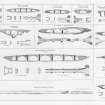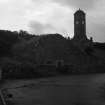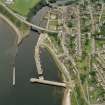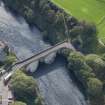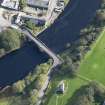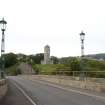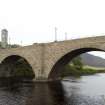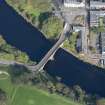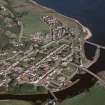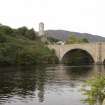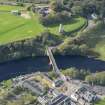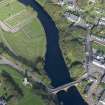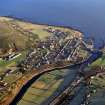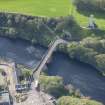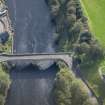Pricing Change
New pricing for orders of material from this site will come into place shortly. Charges for supply of digital images, digitisation on demand, prints and licensing will be altered.
Helmsdale, Helmsdale Bridge
Road Bridge (19th Century)
Site Name Helmsdale, Helmsdale Bridge
Classification Road Bridge (19th Century)
Alternative Name(s) River Helmsdale; Helmsdale, Old Bridge
Canmore ID 7477
Site Number ND01NW 59
NGR ND 02589 15383
Datum OSGB36 - NGR
Permalink http://canmore.org.uk/site/7477
- Council Highland
- Parish Kildonan
- Former Region Highland
- Former District Sutherland
- Former County Sutherland
ND01NW 59 02589 15383
Helmsdale Bridge [NAT]
OS 1:10,560 map, 1964.
For (successor and present) Helmsdale, New Bridge (ND 0278 1520), see ND01NW 58.
Architect: Thomas Telford (1803-1821).
(Undated) information in NMRS.
(Location cited as ND 026 154). Helmsdale Bridge, built 1808-9, engineer Thomas Telford. A masonry bridge with two segmental arches, each of 70ft (21.3m) span, and triangular cutwaters.
J R Hume 1977.
(Location cited as ND 026 154). Helmsdale Bridge was built by Telford in 1811 across the River Helmsdale.
G Nelson 1990.
A little upstream of the New Bridge (ND01NW 58), by Thomas Telford, 1809-11.
J Gifford 1992.
This bridge carries the present line of the A9 public road across the River Helmsdale, to the S of the town of Helmsdale (ND01NW 66).
Information from RCAHMS (RJCM), 30 March 1998.
The location assigned to this record defines the midpoint of the structure. The available map evidence suggests that it extends from NH c. 02566 15373 to NH c. 02611 15391.
Information from RCAHMS (RJCM), 21 April 2006.
Construction (1810 - 1811)
Crossing the Helmsdale River in twin segmental arch spans. Unusual Telford design (Paxton and Shipway, 2007, 216)
Publication Account (2007)
Helmsdale Bridge
(Institute Civil Engineers Historic Engineering Works no. HEW 0258)
An unusual elevation Telford bridge of 1810–11 crossing the Helmsdale in twin segmental arch spans of 70 ft with a rise of 25 ft, its elevation being dictated by the width of the opening to be crossed. Its unresolved duality aspect is quite cleverly relieved by parapets which slope upwards from the abutments to form a flat inverted ‘V’ over the centre pier.
The bridge, which was built by George Burn for £2176, has stepped cutwaters carrying semi-hexagonal pillars which reach to the parapets. These, the string courses and tapered pilasters give the bridge a handsome appearance even though built in random rubble rather than squared masonry.
R Paxton and J Shipway, 2007.
Reproduced from 'Civil Engineering heritage: Scotland - Highlands and Islands' with kind permission from Thomas Telford Publishers.









































